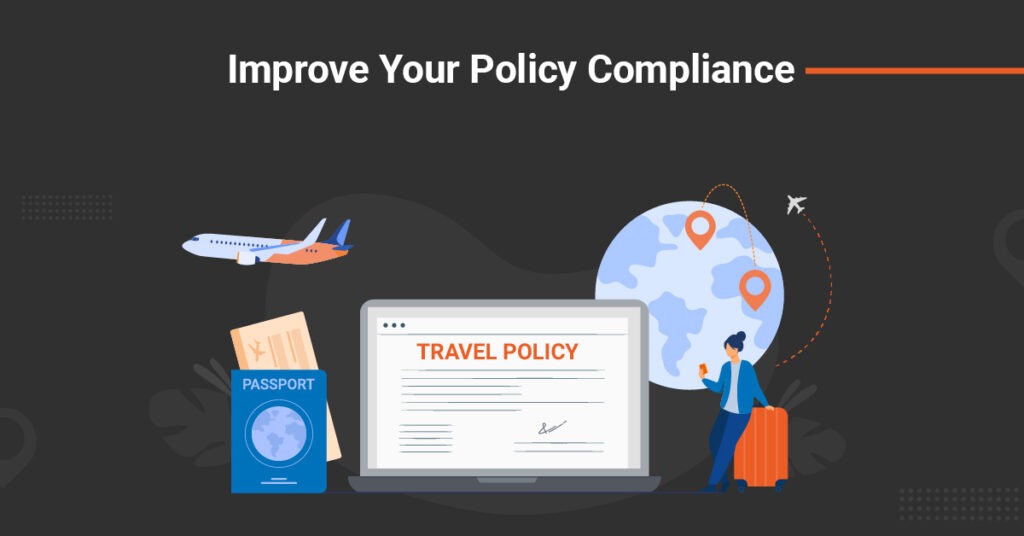Corporate travel management is a critical aspect of business operations, ensuring that employees can travel efficiently and cost-effectively. However, ensuring compliance with company travel policies and industry regulations is equally important. Corporate Travel Management Companies (CTMCs) play a pivotal role in this process. In this blog post, we will explore how CTMCs ensure compliance and why this is vital for businesses.
The Importance of Compliance in Corporate Travel
Compliance in corporate travel refers to adhering to company travel policies, industry regulations, and legal requirements. It is essential for several reasons:
1. Cost Control: Compliance helps in maintaining control over travel expenses, preventing overspending, and ensuring cost-effective travel solutions.
2. Risk Management: It reduces the risk of fraud and ensures the safety and security of traveling employees.
3. Policy Adherence: Ensures that employees follow company policies, which can include preferred vendors, booking procedures, and expense reporting.
4. Regulatory Compliance: Adherence to industry and legal regulations to avoid fines and legal issues.
How CTMCs Ensure Compliance
1. Policy Implementation and Enforcement
CTMCs work closely with businesses to develop and implement comprehensive travel policies. They ensure these policies are integrated into the booking and travel management systems. Automated systems flag any bookings that do not comply with the policy, requiring approval from management before proceeding. This ensures all bookings adhere to the established guidelines.
2. Centralized Booking Systems
By using centralized booking platforms, CTMCs ensure that all travel arrangements are made through a single system. This provides visibility into all travel activities and allows for better monitoring and control. Centralized systems make it easier to enforce travel policies and streamline the approval process.
3. Real-Time Monitoring and Reporting
CTMCs use advanced travel management software to monitor travel activities in real-time. This allows them to identify and address compliance issues as they arise. Detailed reporting tools provide insights into travel patterns, expenses, and policy adherence, enabling businesses to make informed decisions and adjustments.
4. Vendor Negotiations and Preferred Supplier Programs
CTMCs negotiate with airlines, hotels, and other travel vendors to secure preferred rates and establish preferred supplier programs. These agreements often include compliance clauses that ensure services are delivered as per the agreed terms. By directing employees to use preferred suppliers, CTMCs help maintain compliance with company policies and achieve cost savings.
5. Expense Management and Auditing
Expense management is a critical component of compliance. CTMCs provide tools and systems for employees to submit and track travel expenses. Automated auditing processes review expenses against company policies and flag any discrepancies. This ensures accurate reporting and reimbursement, reducing the risk of fraud and non-compliance.
6. Traveler Education and Support
CTMCs provide training and resources to educate employees on travel policies and compliance requirements. They offer support through 24/7 customer service, assisting travelers with any issues that may arise. Well-informed employees are more likely to adhere to policies and ensure compliance.
7. Data Security and Privacy
Ensuring the security and privacy of travel data is crucial. CTMCs implement robust data protection measures to safeguard sensitive information. Compliance with data protection regulations, such as GDPR, is essential to avoid legal repercussions and maintain trust with clients.
The Benefits of Ensuring Compliance
Ensuring compliance with travel policies and regulations offers several benefits for businesses:
– Cost Savings: Reduces unnecessary expenses and ensures cost-effective travel arrangements.
– Risk Reduction: Minimizes the risk of fraud, legal issues, and security breaches.
– Improved Efficiency: Streamlines travel processes and reduces administrative burden.
– Enhanced Reporting: Provides accurate and detailed insights into travel activities and expenses.
– Employee Satisfaction: Clear policies and support improve the travel experience for employees.
Conclusion
Corporate Travel Management Companies play a vital role in ensuring compliance with travel policies and regulations. Through policy implementation, centralized booking systems, real-time monitoring, vendor negotiations, expense management, traveler education, and data security, CTMCs help businesses maintain control over their travel activities. Ensuring compliance not only leads to cost savings and risk reduction but also enhances the overall efficiency and effectiveness of corporate travel programs.


